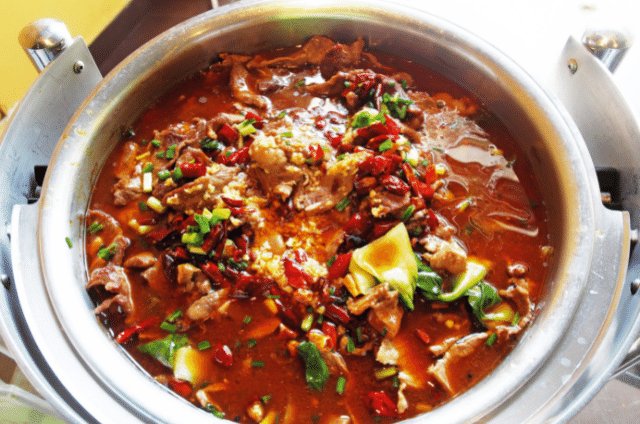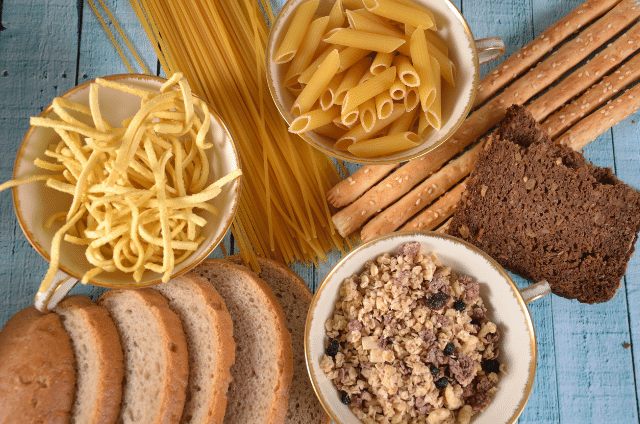It’s happened to many of us. You sit down to enjoy a plate of long-awaited Chicken Chow Mein, and it’s everything you hoped it would be, but not long after eating it, you’re suddenly hit with a bad case of diarrhea. Did the Chinese food cause this?
Monosodium glutamate has been blamed for upset stomach, diarrhea, and a host of other symptoms, now called MSG symptom complex, since 1968. Research has failed to validate this connection leading some to ask the question all over again.
Because for some people there remains an undeniable connection between Chinese food and an extended stay on the toilet. So, if not MSG, what about Chinese food causes diarrhea for some people?
What Ingredient in Chinese Food Can Cause Diarrhea?

Even if you restrict probable causes to food in general the sources of your diarrhea could be legion. The fact is any number of ingredients typically found in Chinese food can cause diarrhea in the person with the right sensitivities.
First, eliminate a few of the obvious, non-Chinese food-related candidates. According to Medical News Today, “diarrhea is unlikely to be related to food intolerance if it:
- contains blood or pus
- is accompanied by a fever
- occurs for an extended period
Also, before you point the finger at food, take a quick mental inventory of any recent medicine changes (like taking an antibiotic), since that could be a cause as well.
Now that’s over with, let’s take a look at some possible candidates of ingredients in Chinese food that could be causing diarrhea. And we’ll start with the most infamous.
#1. MSG

According to the New York Times, Monosodium glutamate was first identified as a problematic substance after Dr. Robert Ho Man Kwok wrote a letter outlining his symptoms after eating some Chinese food, to the New England Journal of Medicine in 1968.
After other doctors reported similar symptoms after eating Chinese food, the Journal began investigating.
It became known as Chinese restaurant syndrome. Healthline identifies the common symptoms of what is now known as MSG symptom complex:
- Numbness, tingling or burning in the mouth and throat and face
- Fatigue
- Headaches
- Nausea
- Facial pressure or tightness
- Chest Pain
- Sweating
- Skin flushing
Today scientific research has not been able to validate the connection between MSG and these symptoms. Nevertheless, some people believe themselves to be sensitive to MSG. Some claiming this sensitivity offer diarrhea as one of the main symptoms, as in some of the comments in the thread to this article from food scientist Dr. Taylor Wallace.
If you believe you are sensitive to MSG, Healthline advises you also avoid some other common food additives that companies will list to avoid listing MSG:
- Glutamic acid
- Soy protein isolate
- Yeast extract
- TVP or textured vegetable protein
- Autolyzed yeast
(Check it out: 7 Chinese Foods that Contain the Least Amount of MSG)
#2. Sugar

Much less glamorous than MSG, sugar may be the cause of your regular diarrhea, as odd as it may sound.
It’s difficult for your body to absorb large amounts of sugar and it can only absorb so much in a given time frame. Harvard Health Publishing quotes Dr. Norton Greenberger: “Seventy-five percent of people who ingest more than 40 to 80 grams of fructose per day will get diarrhea.”
One of the downsides of Chinese food is that many of the dishes have heavy sauces, and some of those sauces can be high in sugar. As one food expert put it, “If you know how to use sugar, you are able to cook Sichuan food at the professional level.”
So, while the world has been blaming MSG for the last several decades, it’s entirely possible your natural cap on sugar consumption is the source of your diarrhea.
#3. Spicy

When listing the world’s 12 spiciest cuisines, Eater begins with Chinese. Sichuan dishes can use a variety of chiles including fresh green and dried red, as well as red chile oil and Sichuan peppercorns. The even hotter Hunan uses fresh green chiles, pickled green and red chiles, and dried chiles.
Eater also notes that even northern Chinese cuisine can be hot since many of the dishes are based on Hunan and Sichuan cooking. (Check it out: Sichuan Cuisine )
Spicy food is a commonly known cause of diarrhea because the colorless, bitter compound called capsaicin, present in chili peppers, can irritate the lining of your stomach and produce a laxative effect.
#4. High Fat

While some Chinese dishes are healthy, some are not. Many of our favorite Chinese food dishes are high in fat which, among other things, can cause diarrhea.
Just like all the other high-fat foods that can upset your stomach (especially if you eat a lot of it), Chinese food is no different. Web MD lists the worst Chinese food dishes in terms of fat:
- Egg Rolls
- Crab Rangoon
- General Tso’s Chicken
- Barbeque Spareribs
- Fried Rice
- Sweet and Sour Pork
- Orange Beef
- Lo Mein
Raise your hand if I just listed off your favorite Chinese food dishes. Yep, our list of diarrhea-causing suspects is growing.
#5. FODMAPs

Fermentable oligosaccharides, disaccharides, monosaccharides, and polyols, or FODMAPs for short, are all in a category of carbohydrates that, for some people, are difficult to digest. And for the people who are sensitive, FODMAPs can cause diarrhea.
The acronym is not very helpful for the average person so let’s take a look at food items that are considered FODMAPs. We’ve already mentioned some, namely fructose, which is found in sugar. Lactose is also considered a FODMAP.
Here are a couple of significant mentions:
- onion
- garlic
These two make it onto the list because they are high in fructan which is a type of oligosaccharide (the “o” in FODMAP).
Chinese food dishes can often have onion or garlic in them (to say nothing of polyols in the form of artificial sweeteners), which can add to the already formidable list of causes of diarrhea.
#6. Gluten

There are varying levels of intolerance to gluten which can include reactions such as diarrhea. Intolerance to gluten, which is found in wheat, spelled, rye, and barley, has gotten a lot of press in recent years and caused many to look at their diets.
Celiac disease is a severe form of gluten intolerance where the immune system mistakes gluten proteins for foreign invaders. The disease affects up to 1% of the United States population and appears to be on the rise.
You may argue that if you had gluten intolerance you wouldn’t be able to eat anything since it is found in so many foods. But then so is MSG, and some people insist they have sensitivities to it.
So, for the sake of exploring all the options, it’s worth noting that a lot of Chinese dishes contain flour. Add to the egg rolls, lo Mein, and General Tso’s Chicken listed above noodles, moo shu pancakes, and wonton soup.
Furthermore, most of the condiments in a Chinese restaurant, not the least of which is soy sauce, contain wheat. If Chinese food is giving you diarrhea and nothing else seems to add up as the cause, gluten sensitivity may be worth investigating.
Conclusion
The term Chinese restaurant syndrome came under attack earlier in 2020 because of the lack of research linking MSG to any of the symptoms listed in the syndrome. With the standard explanation called into question, you may need to rethink what ingredient in Chinese food is causing your diarrhea.
Best not to rule anything out. Sugar, spice, and all that’s not nice are possibilities. Speaking of which, lest we judge the ingredient list too hastily, you might consider factoring quantity into your calculations if the all-you-can-eat buffet is your weakness.
